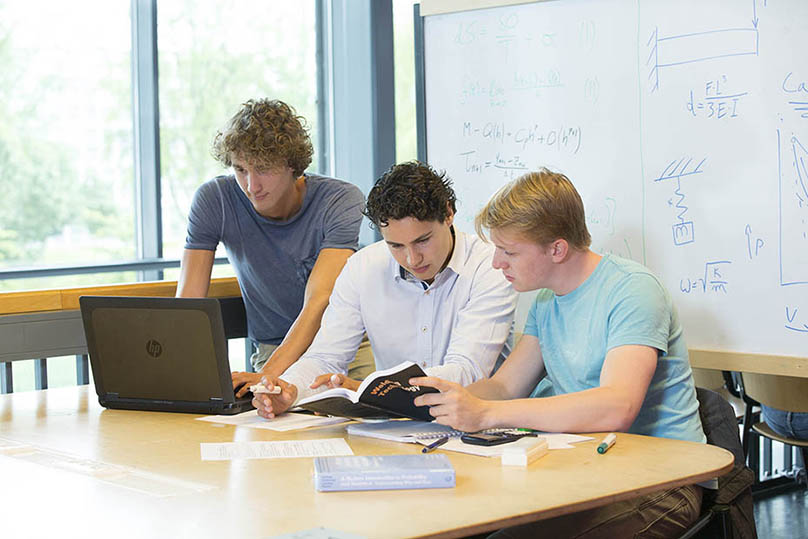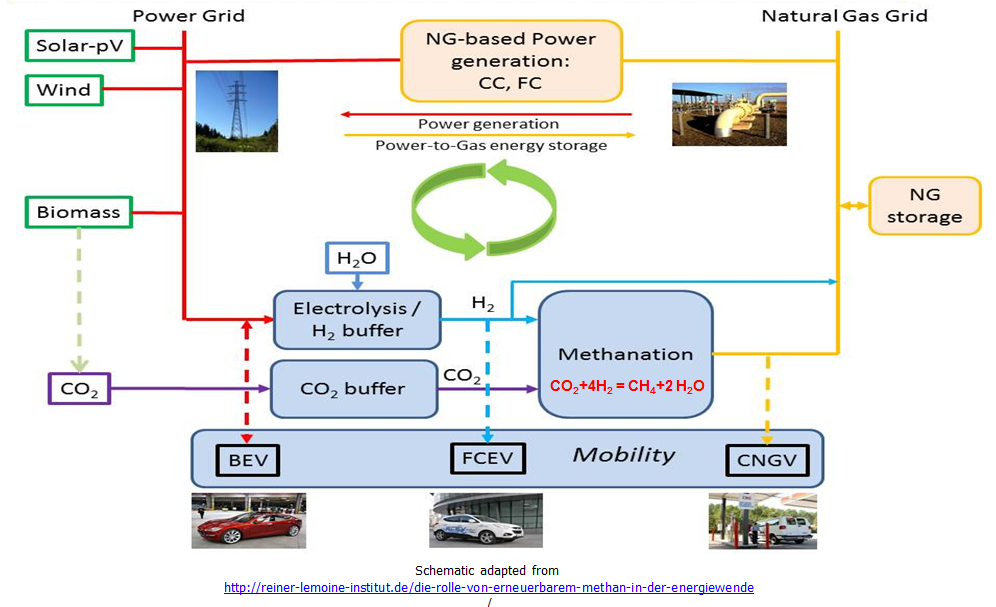Engineering for Large-scale energy conversion and storage - ‘ELECS’
WB-MI-217
The aim of the minor is to equip bachelor engineering students with selected knowledge and skills concerning energy conversion and storage systems and component technologies that are based on renewable resources, which are as such mostly fluctuating and not-well predictable. Electricity is not easily and cost-effectively stored, so a mismatch –both in time and geographically- between demand and supply of power is a real societal challenge. Also, storage of electricity needs to be accomplished at widely varying time scales to cope with fast weather fluctuations, day-night rhythm, occurrence of larger weather systems’ effects and seasonal variation of supply.

Faculty of Mechanical Engineering
EC’s
30
Language
English
Maximum participants
75
| Non-selection minor: | |
| Selection minor: | |
Education methods
Course set in combination with a challenging integrated projectFor whom?
Targeted students for the Minor ‘ELECS’ are those with an engineering basic knowledge of thermodynamics, heat transfer and/or fluid mechanics; i.e. students of Mechanical Engineering, Aerospace Engineering, Applied Sciences, Electrical Engineering, Technology Policy and Management, and Civil Engineering (Strictly: MT, Wb, CT, EEMCS, TA, AE, TB, LST, MST, NB, TN)
What will you learn
This minor will deal with providing the fundamentals of a the most relevant intermittent renewable energy supply systems, wind and solar energy systems. Furthermore, systems analysis performance evaluation courses (energy storage, life cycle assessment) and practical studies (system modelling of energy conversion and storage systems and component level study design/research project) will be offered to enable students to make an evaluation of a large renewables based energy conversion and storage systems.
Course overview
-
Fundamentals of Wind Energy I - 3 ECTS
This course introduces the topic of offshore wind energy by going through the main steps that a wind farm developer needs to achieve in order to build an offshore wind farm.Energy conversion: Devices, Systems and Efficiencies - 4 ECTS
This course aims to introduce the students to energy conversion equipment; students are familiarized with concepts for selection and design criteria as well as providing an overview of relevant systems and their efficiencies.Energy Storage - 5 ECTS
Energy storage becomes increasingly important in society due to the introduction of increased shares of fluctuating renewable energy sources, like wind and solar energy. This course will introduce the students to the different strategies and systems of energy storage (mechanical, thermal, chemical), with an emphasis on large-scale storage systems for electricity.Design project ‘Renewables based energy conversion and storage’, part A - 3 ECTS
As final synthesis of the knowledge and skills obtained in the Minor, students will design an energy conversion and storage system based on renewable energy forms; system modelling and simulation will be performed and/or an integrated laboratory setup is designed, tested and evaluated. -
Solar Energy - 3 ECTS
Solar cells are presented as advanced semiconductor devices that deliver electricity directly from sunlight. The emphasis is on understanding the working principles of a solar cell, fabrication of solar cells, PV module construction and design of a PV system.Assessment of Energy Systems - 3 ECTS
This course will introduce the students to systematic ways to evaluate energy conversion systems; exergy analysis and life cycle assessment will be introduced and applied on cases.Design project ‘Renewables based energy conversion and storage’, part B - 9 ECTS
As final synthesis of the knowledge and skills obtained in the Minor, students will design an energy conversion and storage system based on renewable energy forms; system modelling and simulation will be performed and/or an integrated laboratory setup is designed, tested and evaluated.
Register for this minor
Participating institutions
Mechanical Engineering, Aerospace Engineering, Civil Engineering and Geosciences, Electrical Engineering, Mathematics & Computer Sciences, Technology Policy and Management

